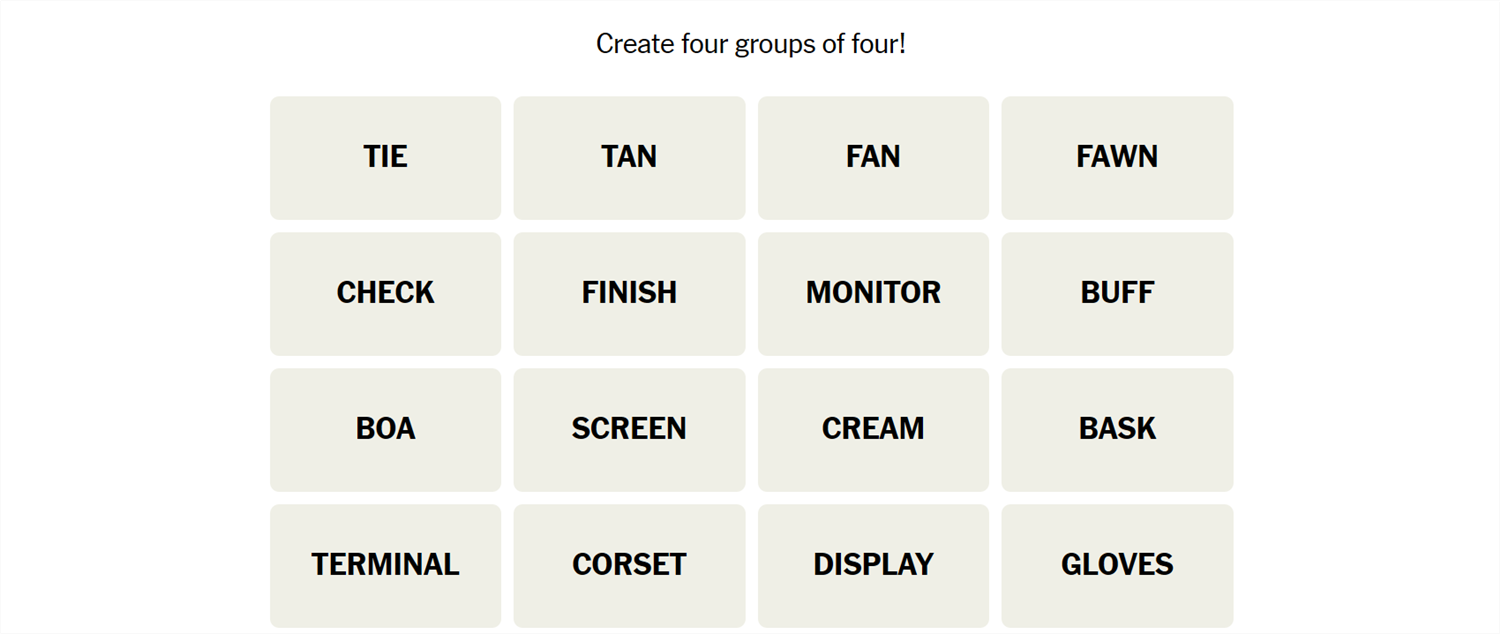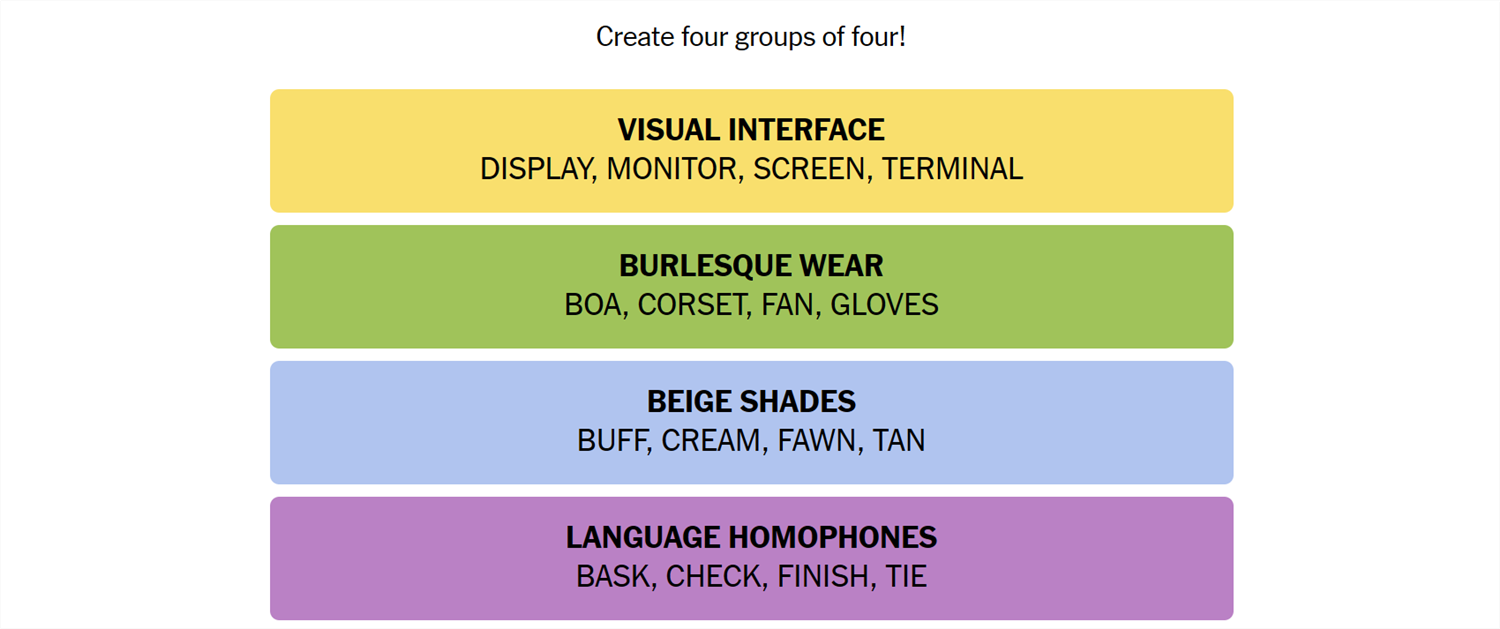Connections is a game from the New York Times that challenges you to find the association between words. It sounds easy, but it isn’t—Connections categories can be almost anything, and they’re usually quite specific. If you need a hand getting the answers, we’ve got you covered.
What Is Connections?
Connections is a game from the New York Times. The objective is simple: sort 16 words into groups of 4. Each group of words will be connected by some common idea or theme. That common element could be anything. We have seen everything from games that rely on the number of letters in the words to categories that require you to spot an extra letter at the end of the word. Sometimes they’re references to economics, other times they reference fairy tales. There is no telling what sort of association there will be between words.
Once you’re confident you understand the connection, select 4 words, then hit “Submit.” You have only four attempts in total, so don’t be too guess-happy.
Hints for Today’s Connections Groups
Here are a few hints for the 439th Connections game to get you started:
- Yellow: How you interact with computers.
- Green: Special attire for a type of entertainment.
- Blue: A bland color.
- Purple: What do these words sound like?
If you still need help, the actual group names are:
- Yellow: Visual Interface
- Green: Burlesque Wear
- Blue: Beige Shades
- Purple: Language Homophones
Today’s NYT Connections Answers
Visual Interface (Yellow):
Display, Monitor, Screen, Terminal
Burlesque Wear (Green):
Boa, Corset, Fan, Gloves
Beige Shades (Blue):
Buff, Cream, Fawn, Tan
Language Homophones (Purple):
Bask, Check, Finish, Tie
How Did We Solve This Connections Game?
Today’s game actually stumped me—I ran out of guesses.
The first (and only) group I got was Yellow, which included display, monitor, screen, and terminal. The group name was “Visual Interface.”
From here, things rapidly got worse for me. A corset is a type of clothing, and so are gloves and a tie. I tried finding another word, but realized that I wasn’t getting the hint that indicated I was one word off. I started switching out words, but expended all of my guesses here.
Corset was actually in the Green group, “Burlesque Wear,” with boa, corset, fan, and gloves. I’m not sure I would ever have associated boa with anything other than a snake, and tie wasn’t in the group at all.
Buff, cream, fawn, and tan are all “Beige Shades,” and were in the Blue group.
Bask, check, finish, and tie were in the Purple group, “Language Homophones.” Check (Czech), finish (Finnish), and tie (Thai) were all pretty straight forward, but bask (Basque) is going to be very difficult for most people. Basque is a language spoken in parts of North-central Spain and Southern France by an ethnic group of the same name. The language has been spoken in the region for thousands of years, and is the only language from the area to survive Romanization.
How Do You Guess Connections Groups?
There is no quick, reliable way to approach Connections like there is with Wordle, since Connections isn’t algorithmic. However, there are a few things to keep in mind that can help.
- Look for similar parts of speech. Are some words verbs and others nouns? Are some adjectives? Try mentally grouping them based on those categories and see if any other patterns jump out at you.
- Are the words synonyms? Sometimes categories will just be synonyms for a phrase, or very close to synonyms. Don’t rely too closely on this, though. Occasionally, Connections will deliberately throw in words that are sometimes synonyms to mislead you.
- Try saying the words. Sometimes, saying the words helps. One puzzle we saw included the words go, rate, faster, clip, pace, speed, move, commute, and hurry—all of which are obviously related to the idea of motion. However, when you say them, it becomes a little more obvious that only four (go, move, hurry, faster) are things you’d actually say to prompt someone to get moving.
- Expect the red herring. Connections usually has words that could be plausibly, yet incorrectly, grouped together. Take the words Bud, Corona, and Light, as an example. You might instinctively see those three words together and assume they’re lumped together in a category related to beer—but they weren’t.
- Look for distinct words. If a word on your board doesn’t have multiple meanings or can really only be used in one context, try using that word as the basis for a category.
- Shuffle the board. Sometimes, moving words around will help you look at them in new ways.
If you didn’t solve this one, don’t feel too bad—there’s always tomorrow! And those words may align with a topic you’re interested in, giving you a leg up on the competition.






